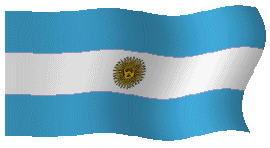
B"H
Jewish  Tours
Tours
 Buenos Aires, Argentina
Buenos Aires, Argentina
Early History
The origins of Jewish settlement in Bolivia can be traced back to the colonial period, when Marranos from arrived in the country, which at the time was part of the Viceroyalty of Some Jews worked in the silver mines of Potosi, others were among the pioneers who founded the city of Santa Cruz de la Sierra in 1557. Indeed, certain customs still maintained by old families in that region, for example lighting candles on Friday nights and sitting on the ground in mourning when a close relative dies, suggest possible Jewish ancestry. The only extant documents from the period are those of the Inquisition which was established in Peru in 1570, and whose appearance signaled the incipient demise of the Marrano community.
The 1900's
It was not until the 1900's that substantial Jewish settlement took place in Bolivia. In 1905, a group of Russian Jews settled in Bolivia and were followed by another group from Argentina, and later by several Sephardi families from Turkey and the Near East. The Jewish community nonetheless remained minuscule. It was estimated that in 1917 only 20 to 25 Jews lived in the country, and by 1933, at the beginning of the Nazi era in Germany, there were only 30 Jewish families. The first tide of Jewish immigration came in the early 1930s, with an estimated 7,000 new immigrants by the end of 1942. Approximately 2,200 emigrated, however, from Bolivia by the end of the 1940s. Those who remained settled in La Paz, and by 1940 communities had arisen in outlying cities such as Cochabamba, Oruro, Sucre, Tarija, and Potosi.
In 1939, Bolivia's liberal immigration policy was modified, as it had been in other Latin American countries. This move kept with the policy of barring entry to nationals of the Axis powers. In addition, a certain amount of discontent was engendered with the discovery that most of the Jewish immigrants who had entered the country on an agricultural visa were actually involved in commerce and industry. In May 1940, all Jewish visas were suspended indefinitely; nevertheless, immigration did continue. After World War II a small wave of Polish Jews who had fled to the Far East after 1939, but abandoned Shanghai in the wake of the communist takeover, arrived in Bolivia. The major part of the group remained in La Paz, and was incorporated into the existing community.
These years in the Jewish community were marked by difficult economic conditions, especially for those who did not own businesses. Between January 1939 and December 1942, $160,000 was disbursed for relief by the American Jewish Joint Distribution Committee, and by the Sociedad de Proteccion de los Inmigrantes Israelitas.
By the fall of 1939, when immigration had reached its peak, organized Jewish communities gained greater stability in Bolivia. The first organization to be founded was the Circulo Israelita (1935) by East European Jews, followed by the German Comunidad Israelita. Under the auspices of the Comite Central Judio de Bolivia, various communal services were established: the Hevra Kaddisha, the Cementerio Israelita, Bikkur Holim, the house for the aged, WIZO, and Macabi. The La Paz community started and maintained the Colegio Israelita, a comprehensive school with kindergarten, primary, and secondary grades. Its student body became mixed because the high level of the school attracted non-Jewish students. In the 1950's and 1960's there was a mass emmigration by Jews from Bolivia due to political upheaveal, and Jewish education was one of the prime victims of the emigration trend; Jewish student enrollment, especially in the lower grades, declined drastically.
Outside of La Paz, the community of Cochabamba, which had a Jewish population of about 600 in the mid-1900's, was, and is, the second largest in the country. Its history is inextricably linked with its founder, an Alexandrian Jew named Isaac Antaki, who arrived in the 1920s. He established a large textile factory and also built a synagogue to serve the Ashkenazi and Sephardi community. The Jewish population of the city reached its peak after World War II, but large numbers emigrated in the 1950's. The community never managed to establish a Jewish school, only a kindergarten exists.
Macabi playground, Cochabamba
Present Day
Bolivia's 350 Jews mostly live in the capital, La Paz (180), where there are two synagogues, but there are smaller communities in Santa Cruz and Cochabamba (110). In Cochabamba the Associacion Israelita de Cochambamba maintains a synagogue, a va'ad for kashrut, a cemetery, and a Macabi team. The Colegio Boliviano Israelita in La Paz has a kindergarten, primary school and secondary school, but today, most of its pupils are not Jewish. The Jewish press in Bolivia consists of sporadic papers and bulletins published by the Colegio Boliviano Israelita, B'nai B'rith, and the Federacion Sionista Unida.
These communities have all shrunk considerably in recent years, largely as a result of the 2005 election of Bolivia’s current socialist president, Evo Morales, and his restrictive policies on private-sector enterprise. Though anti-Semitism in Boilivia is not overt, there is also worry over Morales staunch anti-American stance and ties to both Venezuelan President Hugo Chavez and Iranian President Mahmoud Ahmadinejad. The recent wave of emigration from Bolivia is the combination of younger generations of Jews seeking better educational and professional opportunities offered in the United States and Europe and more established members of the community leaving for political reasons. Since Morales took office, Bolivia’s largest Jewish community of La Paz has decreased by some 10 percent and community leaders expect that in the next 10 to 20 years there will be no more Jews in Bolivia.
Sources: "Bolivia," Encyclopedia Judaica
Jewish Telegraphic Agency
Photo courtesy of Comunidad Israelita Synagogue
Map: CIA-World Fact Book
|
Visite nuestro sitio/Visit our home page: |